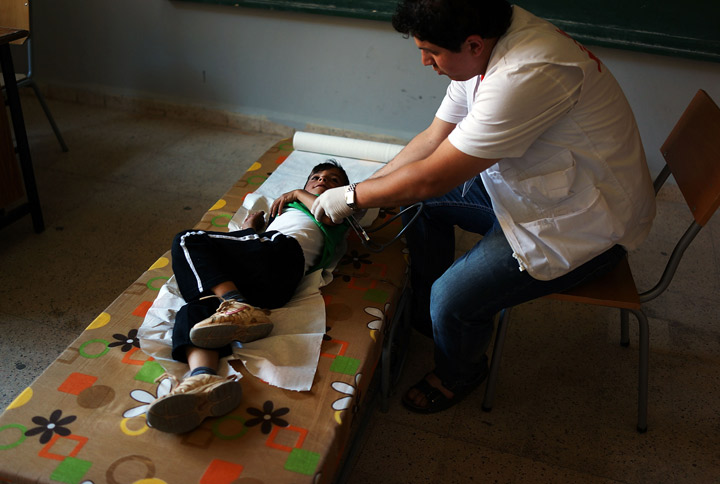TORONTO – Over 60 experts from around the world will meet in Ottawa Wednesday to address threats to health care personnel in war zone countries.

“Violence against healthcare workers, their patients and healthcare facilities in armed conflicts is one of the most critical humanitarian problems today,” said Conrad Sauvé, secretary general and CEO of the Canadian Red Cross.
The two-day international workshop is part of a series of Red Cross workshops led by the International Committee of the Red Cross (ICRC) and will look to identify recommendations on how to help ensure the physical safety of health workers and facilities in armed conflict.
“Hospitals and clinics are often among the first casualties of armed conflict,” said Dr. Mark Steinbeck, a former war surgeon and the ICRC’s leading expert on the subject of health care in danger in North America.
In 2008, the ICRC began to document incidents of violence against health care workers and patients in the 16 nations where it was conducting operations.
In May 2013, a study released by the ICRC found that at least 921 violent incidents occurred against health care personnel, wounded or sick people, and infrastructure in 2012. In that year alone, 70 health care workers were killed while 57 were kidnapped in the 22 unnamed countries studied.
On Sept. 3, 2013, the body of 28-year-old Dr. Muhammad Abyad was found in Aleppo in Syria. Abyad was a surgeon working in Syria for Doctors Without Borders.
While officials said the exact circumstances of Abyad’s death “remain unclear,” Al-Jazeera said the doctor was reportedly kidnapped by an “armed group” that stormed the doctor’s residence.
- Budget 2024 failed to spark ‘political reboot’ for Liberals, polling suggests
- Train goes up in flames while rolling through London, Ont. Here’s what we know
- Peel police chief met Sri Lankan officer a court says ‘participated’ in torture
- Wrong remains sent to ‘exhausted’ Canadian family after death on Cuba vacation
The ICRC said many first-aiders treating blast victims are wounded by “follow-up attacks” triggered remotely.
Steinbeck also said that attacks against health workers and health facilities have immense consequences on patients’ ability to seek care.
“Without these essential services, it becomes impossible to maintain a sterile environment or perform surgery, and it quickly becomes a matter of life and death.”
Violent incidents disrupt prevention activities such as routine vaccination sessions and can result in setbacks for eradicating diseases such as measles and polio.
Recommendations from the event in Ottawa this week are expected to be unveiled at the 32nd International Conference of the Red Cross Red Crescent Movement in 2015.




Comments